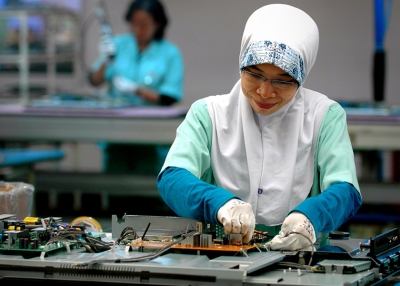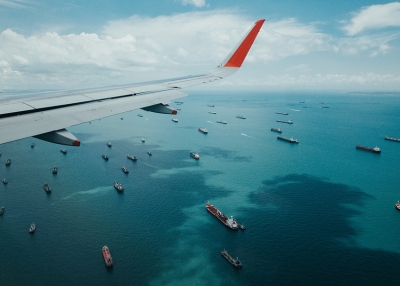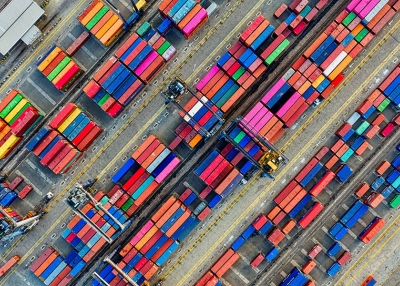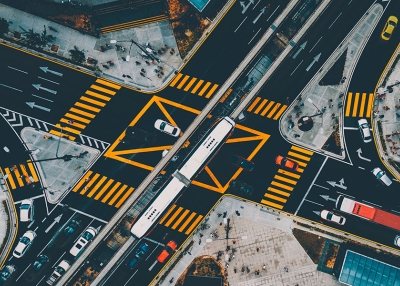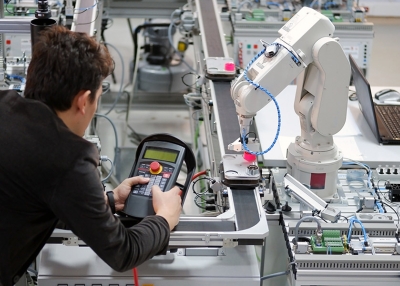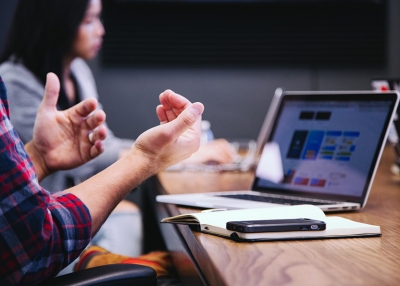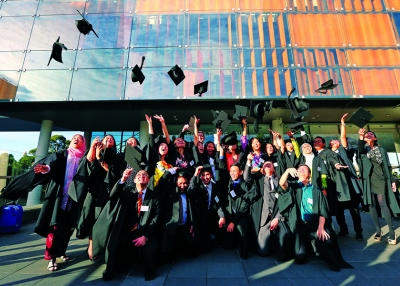Looking Ahead: Revolutionising Investment Pathways for a Sustainable Planet
by Anorah John

My grandmother is a force. She was married at 14 in a village in South India, discontinuing her education. She was, in fact, one of ten children and one of only three to survive past the age of five due to the lack of health awareness and facilities. After getting married, my grandfather went on to build schools, health clinics, and other community-lead initiatives in his village to help break the cycle. Fast-forward two generations, and thanks to the work of my grandparents and my parents who strived to create a better life in their youth for their children, here I am with the opportunity to write this article.
When I reflect on what they managed to achieve in their lifetime in those post-colonial circumstances and without the aid of technology, I can’t help but look in awe at what today’s youth have the potential to achieve in these unprecedented times of disruptive change.
One year ago, millions of youth mobilised around the world for climate action. They took it into their hands to remind corporates and governments that we have reached a tipping point, and dangerous weather events are becoming more extreme and more frequent in their lifetime. Since then, bushfires ravaged Australia in one of the worst wildlife disasters in modern history – the latest research from WWF revealing that 3 billion animals were harmed. The Amazon saw 30,901 individual fires burning this time last year, and Asia endured a series of extreme floods. And COVID-19 has taken the world by storm, pressuring nations to react quickly to contain the pandemic and the sociopolitical chain reactions.
While black swan events are supposed to be rare, 2020 has brought a flock of them. It’s hard not to feel overwhelmed.
So what is this moment of opportunity?
The year of crises has drawn us to rethink our approaches to deliver for both communities and the environment. As we witness the collective mobilise quickly for shared outcomes around the world, society is recognising that the scale of solutions required is beyond the reach of any one organisation, government, or charity. While we don’t know if we will return to a variation of “normality”, we do know that eventually we will recover and grow. Right now, we are presented with a unique opportunity to reimagine and plan a more resilient future economy.
The COVID-19 pandemic, coupled with various disasters and movements around the world, has accelerated key trends that is manifesting in corporate action. The Adapt and Transform report from EY outlines seven opportunity areas coming out of the crisis in Australia, including the move toward expanding the social contract, local and sustainable consumption, and disruptive digitisation.
These greater shifts are aligned with what Millennials and Gen-Z’s have been demanding increasingly through their consumption behaviours and in the workplace in order to accelerate positive change for both people and nature. While these generations’ dependence on social media to remain connected during these times might be sinking us deeper into our silos, global social movements are moving more quickly than ever before. And this will grow further. A recent report by BCG states “with or without a crisis, Gen-Z and Millennials are of special interest, given their increasing spending power in the coming years and their ability to influence older generations”.
One way we can accelerate pathways for delivering impact is by leveraging new, scalable innovations. We have a unique opportunity to capitalise on these market trends, and accelerate it further with the momentum Millennials and Gen Z’s have generated around the world.
What are some existing barriers to achieving this?
There is $2.5 trillion deficit to achieve the UN Sustainable Development Goals by 2030. However, we know that there is plenty of capital out there. The impact investing market in Australia alone has tripled to $20 billion over the last 2 years. Despite this, unlike other ‘mainstream’ start-ups and ventures, the journey to scaling social innovations to deliver impact has various unique barriers.
Social entrepreneurs want a streamlined process
Social entrepreneurs and change makers are looking for a streamlined process for getting exposure for their projects to potential funders, investors and supporters. They are currently spending up to 50 per cent of their time applying for funding and resources, which is time that can be leveraged to better develop and improve the ventures.
They are also looking for access to subject matter experts for guidance and support. And many SMEs want to contribute their time to make a difference as part of a community-of-practice. Given how COVID-19 continues to expose systemic inequalities in our global economy, it becomes increasingly important to support the mission of these often community-led initiatives. Access to expertise and networks during these extraordinary times could well accelerate the pathways for these projects to deliver on their mission by capitalising on key trends coming out of this crisis.
Funders are looking for vetted projects to support
The impact-investing sector in general, is highly capable in identifying projects with robust return on investment. Where the gap lies, and where support is required, is to identify projects that have been vetted for impact. However, this process is currently quite subjective, and it often comes down to the opinion of a small panel of judges or assessors.
We have an opportunity here to enable the identification, peer-review and support of high impact ventures by global subject matter experts to enable the development of high-quality deal flow for investors. If we get this right, such an ecosystem could unlock billions of dollars of capital to be channelled for impact projects through innovative blended finance mechanisms with high degrees of trust.
Global challenges require global collaboration
To solve the global challenges we face today, we need to be ambitious. We need to enable trans-disciplinary collaboration, and leverage the assets of corporations and governments around the world to seek, curate and scale the most impactful and ambitious solutions.
We are in a unique time to leverage economies of scale through digital platforms, to support the prototyping of solutions quickly and to tailor, replicate and scale working models in other similar contexts around in the world.
To enable this type of global collaboration, WWF-Australia’s Panda Labs co-designed Impactio. Impactio enables global collaboration to identify, curate and support high-quality impactful solutions to social and environmental problems. Leveraging an online platform, it provides social entrepreneurs with access to global subject matter experts, and funders with access to high-quality curated projects to help turn them commercially viable to deliver on the UN Sustainable Development Goals. Recently WWF-Australia partnered with the NSW Government Department of Primary Industries and Environment to run the Sustainability Advantage Impact Challenge on Impactio, focused on regenerative economic development post-COVID on the thematic of net zero, nature for business, and the circular economy.
Conclusion
We are at an inflection point. Right now, we are presented with a vanishingly rare opportunity to pause and reimagine what a resilient future economy will look like. Through international collaboration across sectors, we can accelerate pathways for the new and innovative scalable models, which will shape our global economy long after the pandemic has passed.
This new vision for the future gives me hope that we can help break patterns of systemic inequalities that lie at the root of environmental challenges. This is why I do what I do. Will you join me?
Looking Ahead is a new series of analytical papers curated by Asia Society Australia examining how the key sectors of Australia-Asia economic connectivity and cross-cutting policy issues are likely to change as a result of the COVID-19 pandemic, and how Australian leaders should prepare for these changes. The papers will be solutions-oriented, present possible scenarios and policy responses that governments and organisations may pursue.
Asia Society Australia acknowledges the support of the Victorian Government.



